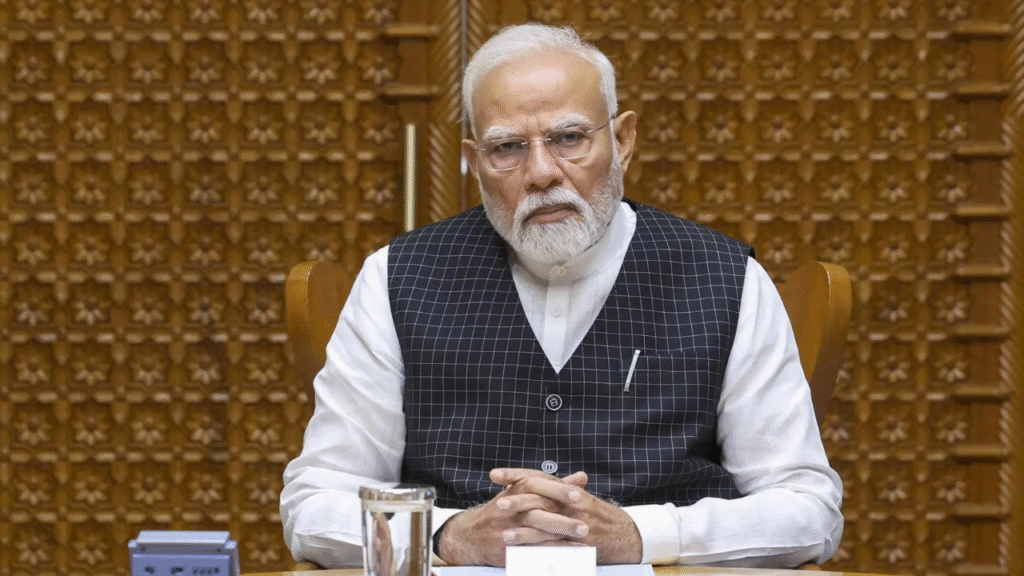India Suspends Indus Waters Treaty with Pakistan Following Pahalgam Terror Attack


In a dramatic escalation of tensions between India and Pakistan, the Indian government has announced the suspension of the 1960 Indus Waters Treaty, a move that has faced strong criticism from Islamabad and raised serious concerns about regional stability. The decision comes in the aftermath of a deadly terrorist attack in Pahalgam, Jammu and Kashmir, which left 26 tourists dead and several others injured.
The Indus Waters Treaty, negotiated by the World Bank and signed in 1960, governs the distribution of water from the six rivers of the Indus basin between India and Pakistan. The treaty allocates control of the eastern rivers—the Sutlej, Beas, and Ravi—to India, while Pakistan is responsible for the western rivers—the Indus, Jhelum, and Chenab. The treaty has been a fundamental aspect of bilateral relations, surviving multiple conflicts and tensions between the two countries.
In response to the Pahalgam attack, the Indian government convened an emergency meeting of the Cabinet Committee on Security (CCS) to decide on an appropriate course of action. Following the meeting, India made the unprecedented move to suspend the Indus Waters Treaty until Pakistan “credibly and irrevocably” halts its support for cross-border terrorism. Foreign Secretary Vikram Misri confirmed that the Attari-Wagah border checkpost, the sole road crossing between India and Pakistan, would be closed immediately. Furthermore, Pakistanis holding SAARC Visa Exemption Scheme (SVES) visas were ordered to leave India within 48 hours, with all such visas being canceled. Diplomatic staff reductions followed, with Pakistani defense, military, naval, and air advisers in New Delhi declared persona non grata and given one week to depart. India also recalled its own military advisers from Islamabad, reducing the total number of personnel in the high commissions from 55 to 30 by May 1, 2025.
Pakistan swiftly condemned India’s suspension of the Indus Waters Treaty, calling it an act of “water warfare” and a breach of international law. Awais Lekhari, Pakistan’s Minister for Power, described India’s move as a “cowardly, illegal act” and warned of severe consequences. Former senator Mushahid Hussain Syed emphasized that India cannot unilaterally suspend or terminate the treaty, stressing that such actions violate international law. He also called for bringing the matter to the attention of the United Nations Secretary-General, dismissing India’s allegations as unfounded.
The international community has expressed concern over the mounting tensions between India and Pakistan. U.S. Vice President JD Vance, who was visiting India at the time of the attack, condemned the violence and expressed solidarity with the victims. Former U.S. President Donald Trump reiterated America’s support for India in its fight against terrorism. The United Nations has urged both countries to exercise restraint and engage in dialogue to prevent further escalation.
The suspension of the Indus Waters Treaty marks a pivotal moment in Indo-Pakistani relations. Historically, the treaty has been seen as a stabilizing factor, with both nations refraining from using water as a weapon of conflict. The current suspension threatens to upend this balance, potentially leading to severe consequences for regional security and cooperation. Analysts warn that the move could provoke retaliatory actions, including disruptions in water supplies that are crucial for agriculture and daily life in both countries.
India’s suspension of the Indus Waters Treaty represents a significant escalation in the ongoing conflict with Pakistan. While India justifies its decision as a response to cross-border terrorism, Pakistan views it as an unjustified and unlawful breach of international agreements. As the two countries navigate this sensitive issue, the role of the international community in promoting dialogue and de-escalation will be crucial to preventing further deterioration of relations and ensuring regional stability.